
Work gloves are essential when working with hazardous materials or in environments where you could damage your hands or lack sufficient grip protecting your hands against damage and contamination is very important.
There are many chemicals that will cause damage or invoke an allergic reaction if they come into contact directly with your skin. Some more poisonous and toxic chemicals can even be absorb through the skin, and this could lead to serious complications such as skin infections, skin cancers or dermatitis.
Before choosing the correct protective gloves you need to be aware of the dangers your workplace presents; be that chemical, mechanical or thermal hazards.
Safety work gloves are manufactured to meet a specific criteria pertaining to the conditions in which they will be used such as; rigger gloves for heavy work or nitrile gloves for fabrication and metal works.
If you’re working outdoors, the chances are you will need sturdy gloves that will be more durable, and resistant to tearing and punctures.
So what work gloves are best for me?
What gloves you need are totally dependent on your job role, and what type of protection you need.
Winter and Cold Store Gloves.
Cold store environments and winter weather requires a pair of glove which can offer exceptional thermal protection, whilst still allowing your hands to have maximum dexterity.
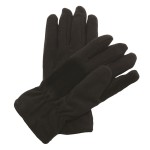
Thinsulate Gloves
£5.49 ex VAT
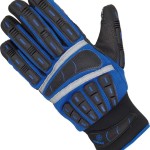
Odin Offshore Gloves
£15.30 ex VAT
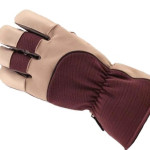
Cold Store Gloves
£8.96 ex VAT
Heat Protection Gloves
Working alongside sources of heat and open flames, and environments where you can be exposed to sources of ignition, sparks and electric arc – your hands will benefit from specifically designed work gloves to protect from these hazards. Primarily for fabricators and welders who often operate power tools such as grinders and welding irons, products such as welding gauntlets are indispensable as they will also protect the lower arm too. Combined with suitable flame retardant PPE, you will be totally protected.
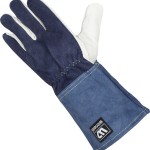
Odin Welder+ Glove
£8.50 ex VAT
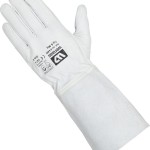
Odin Tig & Mig Glove
£7.00 ex VAT
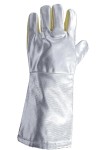
Ignis Gloves
£47.84 ex VAT
Medical and Food Contamination Work Gloves
Gloves used for both medical and food industries are usually made from a nytrile material, and are designed to be single use, disposed of after a shift to reduce the risk of cross contamination. Their lightweight and unobtrusive design ensures that workers in the medical industries especially, are given a great level of dexterity to perform their duties. They will also offer a liquid and water resistant barrier to protect the hands, as well as keep them safe from cross contamination. In food processing plants where operatives will often handle raw produce, these great single use gloves can be coupled with oversleeves to protect the arms, and to stop the contamination of the produce itself.
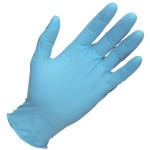
Powder Free Gloves
£38.24 ex VAT
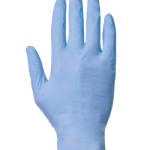
Medical gloves x100
£5.90 ex VAT
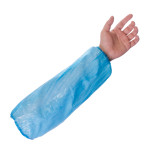
Oversleeves
£31.98 ex VAT
Chemical Protection Gloves
For workers who are exposed to corrosive chemicals on a daily basis, it is imperative that their work gloves are suitable for the job at hand. Chemical protective gloves come in a number of different materials, all of which offer very different protective properties. If you are unsure about what type of glove you need, the HSE Guide for chemical protective gloves will help you.
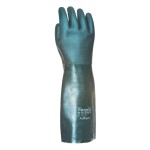
Chemical Gauntlet
£2.99 ex VAT
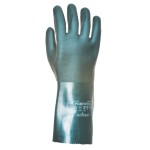
35cm PVC Gauntlet
£2.40 ex VAT
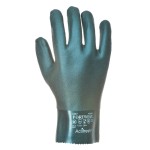
27cm PVC Glove
£1.98 ex VAT
Cut protection Gloves
Working with machinery that has moving mechanic parts, and sharp tools such as saws and nails – your hands need to be protected against cuts, abrasion and punctures. Job roles which may see these hazards include manufacturing, engineering and woodworkers. Cut protection will only offer so much protection however, and when working with chainsaws, you will need specially reinforced gloves designed for this purpose. Chainsaw gloves differ to regular cut resistant work gloves which offers its protection by the fabric its manufactured from, offering improved tensile strength which is more than enough to keep the hands safe from the majority of cut an abrasion hazards. They are usually reinforced with additional layers of leather, and are padded with special fibres which are designed to help bring the blade to a stop when they’re exposed.
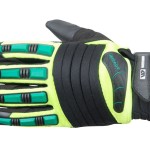
Mechanics Gloves
£14.62 ex VAT
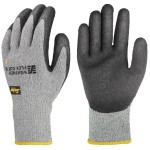
Flex Cut 5 (10) Gloves
£128.70 ex VAT
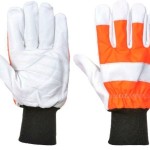
Oak Chainsaw Gloves
£9.88 ex VAT
Anti-vibration Gloves
Many industrial and construction workers work with machinery and heavy power tools such as jack hammers and pneumatic drills, where they can be exposed to intense and prolonged vibration. Over time this exposure can lead to a loss of feeling in the fingers and decreased dexterity, contributing to conditions such as carpal tunnel syndrome and hand-arm vibration syndrome. Anti-vibration work gloves are made to help aide the reduction of vibration, but should never be considered as a total solution. Taking regular breaks and limiting your time spent on machines on a daily basis well further reduce the chances of developing any HAVS.
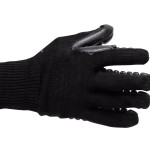
Anti-vibration Gloves
£10.98 ex VAT
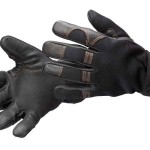
Vibstop Gloves
£14.99 ex VAT
Grip Gloves
When you’re carrying awkward objects and working with raw building materials, enhanced grip is always welcome. There are a range of gloves engineered to improve the quality of your grip, whilst still offering excellent range of movement and comfort.
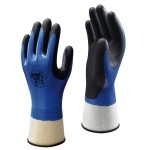
Nitrile Foam Grip glove
£58.96 ex VAT (10pk)
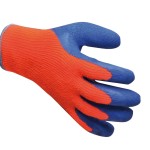
Cold Grip Gloves
£2.44 ex VAT
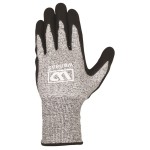
Odin Cutmaster Gloves
£4.49 ex VAT
Click on our logo below to view our extensive selection of safety work gloves, in addition to a fantastic range of PPE and work clothing.

